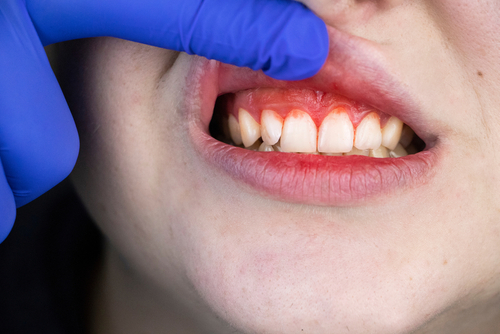Have you noticed your gums become more soft and tender than usual? Are they painful to touch and sometimes bleed when brushing your teeth? These are both symptoms of gingivitis, a common oral disease that affects many. When left untreated, gingivitis can cause several problems that threaten your oral health, such as tooth loss. Thankfully, preventing and treating gingivitis is possible. To learn more, here’s what it is, what can cause it, and the treatments for it.
What Is Gingivitis?
Before learning about the treatments of gingivitis, it’s imperative that you understand what it is. Gingivitis is an early form of gum disease and is sometimes called periodontal disease. It occurs because too much plaque accumulates on your teeth, which is a biofilm made up of various bacteria and similar microorganisms. While the presence of bacteria in your mouth might sound discomforting, it is actually completely natural. However, it will start to become a problem when there are too many bacteria.
Dental plaque produces toxins that infect gum tissue. When this happens, your body will activate an immune response that causes your gums to become red and puffy. This may even cause the gums to bleed, and their tissue can be destroyed. Additionally, gingivitis can worsen into more serious problems when left unchecked, including weakened tooth enamel and periodontitis. As a result, knowing the treatments for gingivitis will help keep your mouth healthy.
What Are the Causes of Gingivitis?
The primary cause of gingivitis is poor oral hygiene. While this makes gingivitis a common occurrence among many people, some circumstances increase the likelihood it develops. To better understand what helps gingivitis develop, here are several contributing factors to be wary of:
- Studies have found that individuals who smoke are more likely to get gingivitis than non-smokers. This is because smoking weakens the body’s ability to fight against infections.
- Similarly, poor diets are another cause. The human body will have a harder time battling infections when it lacks essential nutrients and vitamins.
- Increased stress also makes it more challenging to stave off infections because it weakens the immune system.
- Some prescription medications can increase the risk of gingivitis by reducing saliva production. Saliva normally keeps the mouth clean, meaning that less of it will allow plaque to grow more easily.
- Many natural changes can also cause gingivitis. Puberty, menopause, and pregnancy are just a few of the natural hormone changes that can make gums more sensitive to inflammation.
Are There Treatments for Gingivitis?
There are numerous treatments for gingivitis and methods to prevent it. In fact, good oral hygiene can treat it early on before it worsens. Brushing your teeth twice a day for around two minutes is one of the most effective ways to avoid plaque build-up. Consider replacing your toothbrush every three months, as older and well-used bristles aren’t nearly as good at removing plaque. Using mouth rinse to clean your teeth is another way you can prevent gingivitis at home.
Additionally, knowing what helps gingivitis develop is one of the best ways to prevent it. Avoiding tobacco products, eating healthier, and other positive lifestyle changes will keep your body in good shape to fight off infections.
One of the most beneficial treatments for gingivitis is scheduling routine checkups at your dentist. Professional dentists will help by providing dental cleaning and can offer services if you notice any symptoms. A dentist can offer dental restoration and scaling to remove any plaque and tartar underneath your gums.
If you’re seeking gingivitis treatments or need the assistance of an emergency dentist in Philadelphia, PA, reach out to Center City Emergency Dentist today. We offer various professional services, including our dental implants in Philadelphia. Call us for more information and to begin scheduling an appointment.

